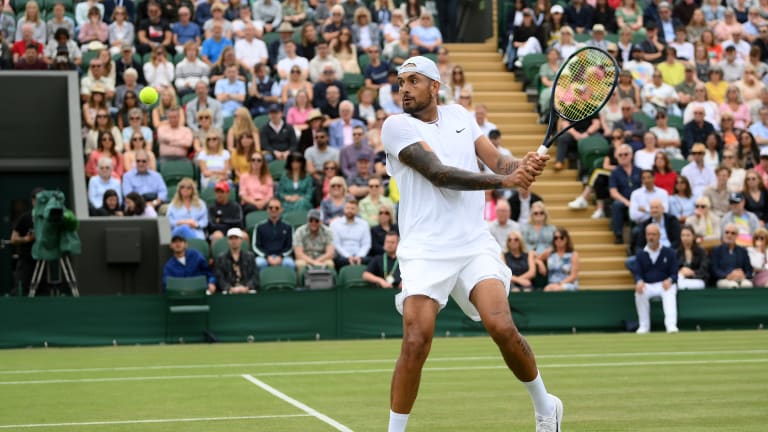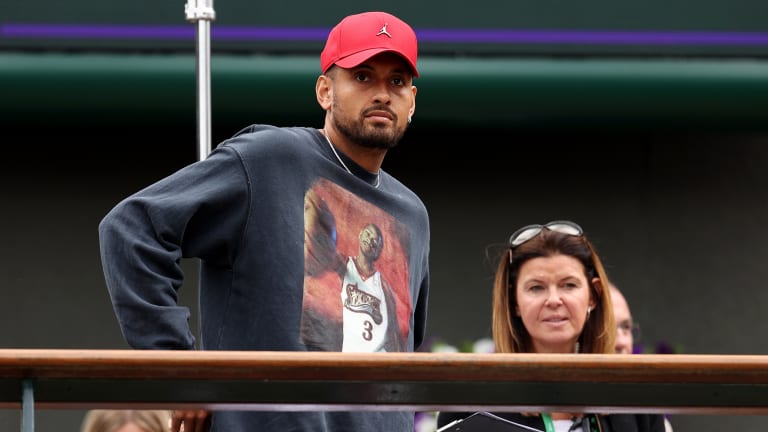Wimbledon
Nick Kyrgios' perplexing shell: On the Aussie's relationship with Wimbledon, the Boston Celtics, and beyond
By Jul 01, 2022Wimbledon
Wimbledon to replace line judges with electronic line calling from 2025
By Oct 09, 2024Wimbledon
The amazing journey of Henry Patten from IBM data logger to Wimbledon doubles champion
By Jul 16, 2024Wimbledon
Hsieh Su-Wei, Jan Zielinski win mixed doubles title at Wimbledon
By Jul 15, 2024Wimbledon
Why Wimbledon Endures
By Jul 15, 2024Wimbledon
Novak Djokovic seeks 2024 answers for Alcaraz and Sinner after great effort: 4 ATP Wimbledon takeaways
By Jul 14, 2024Wimbledon
Carlos Alcaraz is a champion establishing how high he will climb with latest Wimbledon title
By Jul 14, 2024Wimbledon
Nicolai Budkov Kjaer makes history in winning junior boys' Wimbledon title; Renata Jamrichova wins girls' title
By Jul 14, 2024Wimbledon
Carlos Alcaraz beats Novak Djokovic again in Wimbledon final for fourth Grand Slam title
By Jul 14, 2024Wimbledon
For Jasmine Paolini, Barbora Krejcikova was one forehand and one serve too good in the Wimbledon final
By Jul 13, 2024Wimbledon
Nick Kyrgios' perplexing shell: On the Aussie's relationship with Wimbledon, the Boston Celtics, and beyond
His third-rounder against Stefanos Tsitsipas puts the spotlight back on one of the sport's main attractions.
Published Jul 01, 2022
Advertising
Advertising

“I respect him a lot, on the court, what he's trying to do,” Stefanos Tsitsipas said of his next opponent, Nick Kyrgios. “Although he has been a little controversial in the past, I think he's playing good tennis.”
© Getty Images
Advertising

“I’ve literally thrown tennis matches if they’ve lost,” said Kyrgios of his beloved NBA team, the Boston Celtics.
© Ryan Pierse